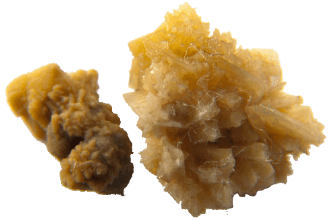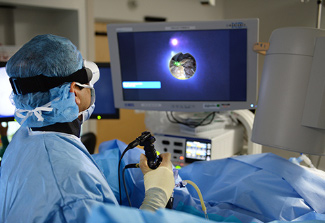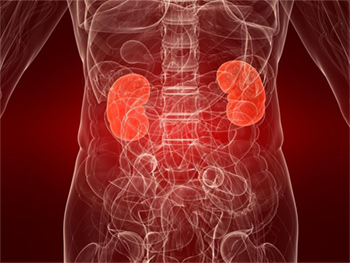Urological Conditions
Prostate Problems
Prostate gland is present only in men and is situated below the bladder.The urine passage goes right through the prostate gland. With increasing age, the gland can increase in size and in some men can cause blockage to urine flow.
This is quiet common with increasing - age. To ease the problems, medications and if required surgery may be required.
Cancer can arise in the prostate gland. Prostate gland can be checked with clinical examination through the back passage and also by a blood test called PSA.
Unlike other cancer, majority of prostate cancer is slow growing and can be cured if detected early by surgery or radiotherapy.
This is quiet common with increasing - age. To ease the problems, medications and if required surgery may be required.
Cancer can arise in the prostate gland. Prostate gland can be checked with clinical examination through the back passage and also by a blood test called PSA.
Unlike other cancer, majority of prostate cancer is slow growing and can be cured if detected early by surgery or radiotherapy.

Kidney Stones
Stones are formed in the kidney and can be quiet trouble some.Small stones in the kidney often do not cause any problems.When stones slip in to the tube called ureter, connecting the kidney and urinary bladder, severe pain occurs.
The pain is because of the movement of the stone down the tube and also the blocking of the kidney.Most of the time patient vomits. Ultrasound scan or CT scan is very useful in diagnosing the condition.
Small stones can pass on their own with medical treatment. Large stones may require key hole operations using laser. Some stones in the kidney can be treated using shock waves called ESWL without operation.
The pain is because of the movement of the stone down the tube and also the blocking of the kidney.Most of the time patient vomits. Ultrasound scan or CT scan is very useful in diagnosing the condition.
Small stones can pass on their own with medical treatment. Large stones may require key hole operations using laser. Some stones in the kidney can be treated using shock waves called ESWL without operation.

Laser stone procedure
Laser is a narrow beam of light when focused on stones, causes breaking and powdering of stones in the kidneys.
The procedure is done under anaesthesia through the natural urine passage.
No external cut is required.
One or two days of hospitalisation is required for the procedure.
The procedure is done under anaesthesia through the natural urine passage.
No external cut is required.
One or two days of hospitalisation is required for the procedure.

Kidney Failure
Kidneys remove the waste products from the body.Kidneys can be affected in diseases like diabetes and high blood pressure resulting in failure. When kidneys are damaged fully, fluid and waste products accumulate in the body causing illness.
Renal replacement treatment in the form of dialysis or transplantation is needed once the kidneys fail completely.
Renal replacement treatment in the form of dialysis or transplantation is needed once the kidneys fail completely.
Dialysis
Artificially removing the waste and the fluid from the body by a machine is called dialysis. 3 to 4 hours of treatment two to three times a week is necessary to remove the waste from the body.
Same thing can also be accomplished by having a tube in the tummy and doing fluid exchanges called peritoneal dialysis (CAPD).
The advantage is that hooking to a machine is not necessary and patient can walk around with the fluid exchange in the tummy or can have the exchange during their sleep at night.
Same thing can also be accomplished by having a tube in the tummy and doing fluid exchanges called peritoneal dialysis (CAPD).
The advantage is that hooking to a machine is not necessary and patient can walk around with the fluid exchange in the tummy or can have the exchange during their sleep at night.
Cadaver Kidney Transplantation
Kidney can be removed from brain dead persons along with other organs like heart, lung, liver and pancreas.
There is a waiting list maintained by each state and patients needs to get themselves registered through their doctor.
The results of cadaver kidney transplantation is very good often reaching living kidney transplants in suitable patients.
There is a waiting list maintained by each state and patients needs to get themselves registered through their doctor.
The results of cadaver kidney transplantation is very good often reaching living kidney transplants in suitable patients.
Transplantation
Transplantation is placing kidney from living persons or brain dead persons in to patients with kidney failure. The transplanted kidney functions like the patients kidney and patient return to their normal life.
Life long medications called immunosuppression is required. This is because patient body can reject the new kidney as it is a foreign organ. After transplantation, regular check up with doctor is necessary and even missing one dose of medication is not advisable. During transplantation operation, the kidney is placed lower down in the tummy and the diseased kidneys are usually not removed.
It usually takes 2 to 3 weeks to recover from the operation.
Life long medications called immunosuppression is required. This is because patient body can reject the new kidney as it is a foreign organ. After transplantation, regular check up with doctor is necessary and even missing one dose of medication is not advisable. During transplantation operation, the kidney is placed lower down in the tummy and the diseased kidneys are usually not removed.
It usually takes 2 to 3 weeks to recover from the operation.
Kidney Donor
Usually left kidney is taken from related blood group matched donor and is placed in patient with kidney failure. The operation is done laparoscopically. The donor is well assessed by doctor before they can donate the kidney.
They should be healthy and not suffer from diseases like cancer, diabetes or uncontrolled high blood pressure. After donating the kidney, the donor recovers and continue to lead a healthy life.
The remaining kidney takes the job of the donated kidney and for the first few years they need to have routine blood and urine tests and should avoid over the counter medications especially the pain killers.
They should be healthy and not suffer from diseases like cancer, diabetes or uncontrolled high blood pressure. After donating the kidney, the donor recovers and continue to lead a healthy life.
The remaining kidney takes the job of the donated kidney and for the first few years they need to have routine blood and urine tests and should avoid over the counter medications especially the pain killers.
Kidney and Bladder Cancer
Cancer can occur in Kidneys and Bladder. Smoking is one of the proven risk factor. The disease usually manifests as blood in the urine.
Blood in Urine - Seen either with naked eye or on microscopic examination needs to be investigated with further tests like Ultrasound and camera examination of the bladder. Kidney cancer and bladder cancer can be cured completely when detected early.Kidney cancer needs surgical removal of the cancer alone or the entire kidney depends on the size of the growth.Advanced cases requires surgery and chemotherapy.
Most of the bladder cancer can be removed through the urine passage with key hole operation. Large bladder cancer requires major operation to remove the entire bladder. Radiotherapy is also an option in suitable patients.
Blood in Urine - Seen either with naked eye or on microscopic examination needs to be investigated with further tests like Ultrasound and camera examination of the bladder. Kidney cancer and bladder cancer can be cured completely when detected early.Kidney cancer needs surgical removal of the cancer alone or the entire kidney depends on the size of the growth.Advanced cases requires surgery and chemotherapy.
Most of the bladder cancer can be removed through the urine passage with key hole operation. Large bladder cancer requires major operation to remove the entire bladder. Radiotherapy is also an option in suitable patients.

Urine Infection
Urine infection is quiet common in women. Repeated urine infection in women needs further tests like ultrasound. Repeated infection may be because of kidney stones. In men, any urine infection needs to be investigated with ultrasound.
Men normally do not get urine infection as urine passage is quiet long. If there is a urine infection, it may be because of diabetes,prostate problems or blockage to urine passage called stricture disease.
Life style modifications can prevent repeated urine infections in women once investigations are normal.
Men normally do not get urine infection as urine passage is quiet long. If there is a urine infection, it may be because of diabetes,prostate problems or blockage to urine passage called stricture disease.
Life style modifications can prevent repeated urine infections in women once investigations are normal.

